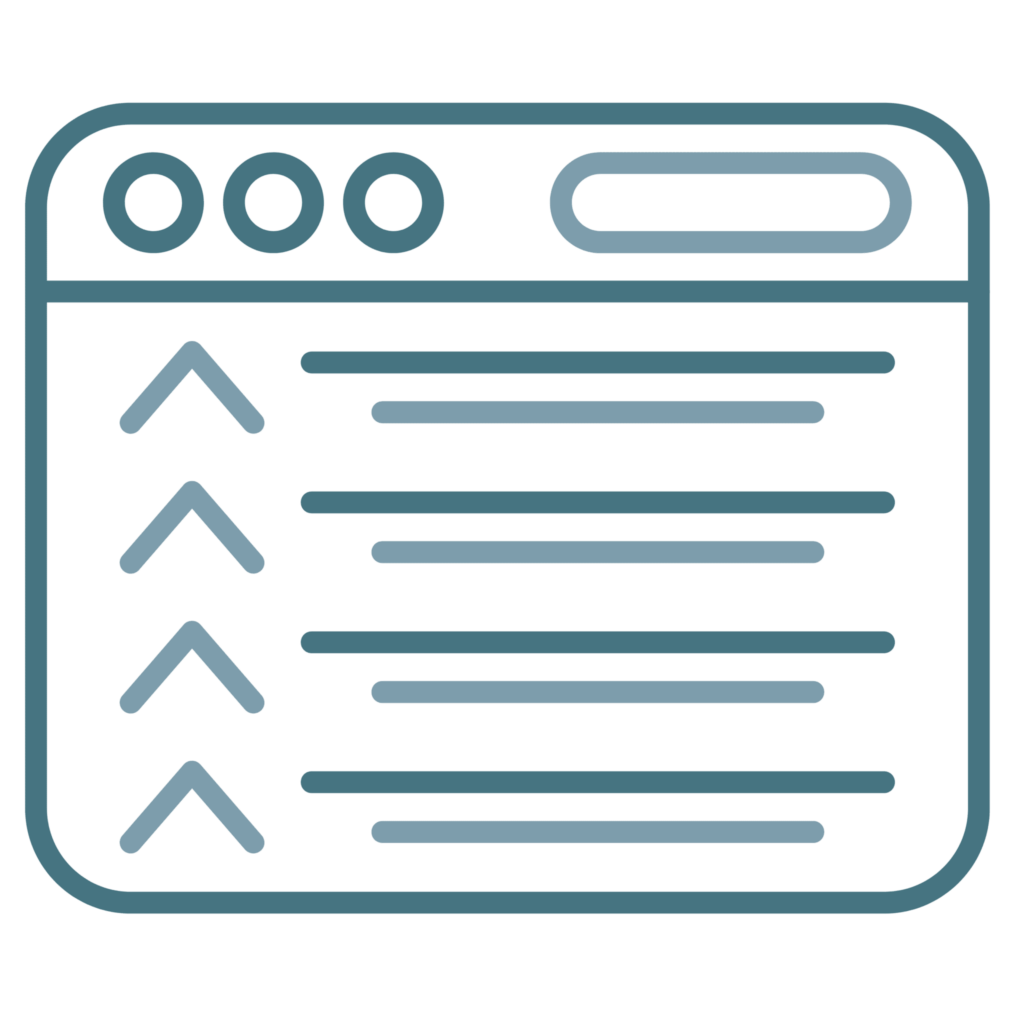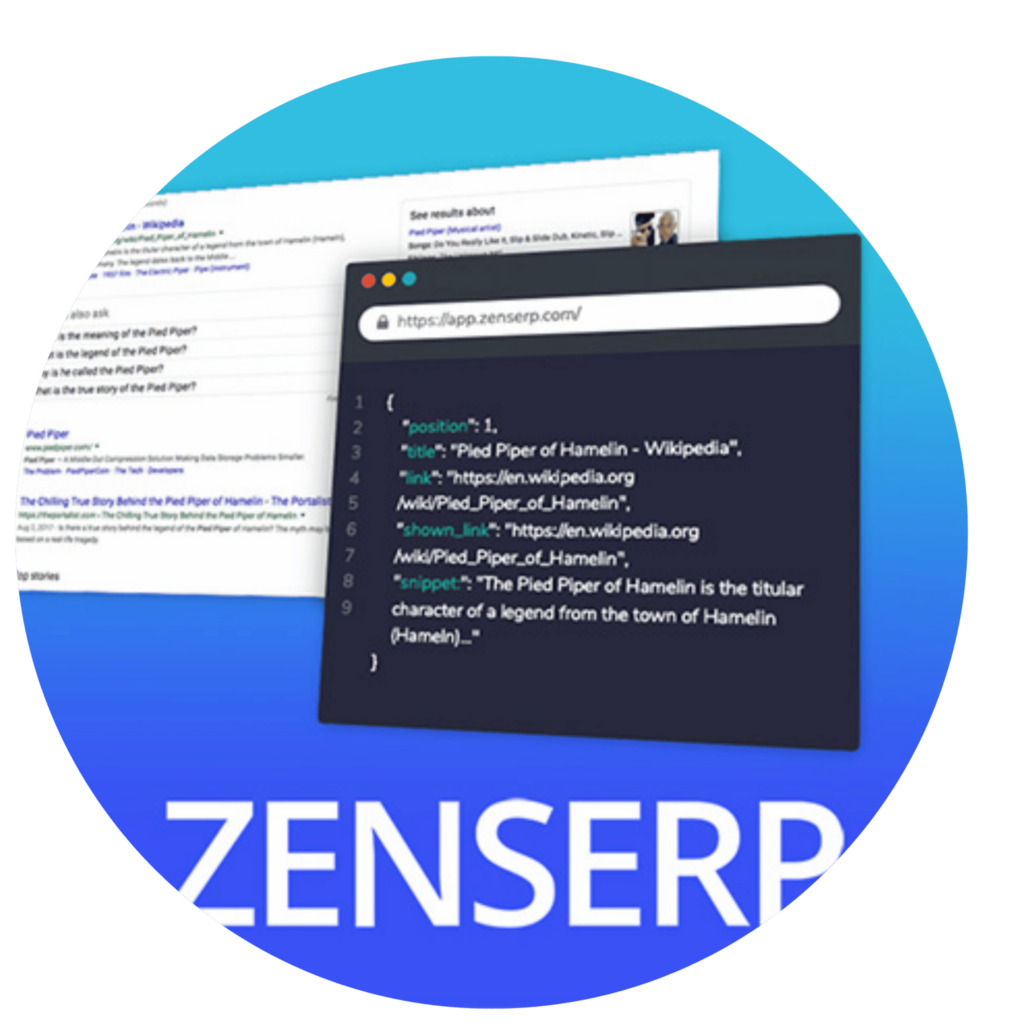If you’re looking for SERP Scraping APIs, you’ve come to the right place. In this blog post, we’ll introduce you to the best SERP Scraping APIs on the market.
We’ll start by discussing SERP Scraping APIs and why you might need one. We’ll then introduce you to the three best SERP Scraping APIs.

What are SERPs?
SERP, or search engine results pages, are the pages that appear in response to a user’s search query. The results are typically a mix of organic and paid results, with the organic results being determined by the search engine’s algorithm and the paid results being determined by advertisers.
SERP aims to provide the user with the most relevant and useful results for their query. This is why the results can vary from one query to the next – the algorithm is constantly being tweaked and updated to provide the best possible results.
Several factors go into determining the results of a SERP, including the user’s location, search history, and the type of device they are using. The results will also vary depending on the specific search engine being used.
The most important thing to remember about SERP is constantly changing. This means that what works today might not work tomorrow, and vice versa. The best way to stay on top of the latest changes is to keep up with the latest SEO news and trends.
Introducing SERP scraping APIs.
SERP scraping APIs are a new and innovative way to scrape search engine results pages. They enable you to scrape pages more efficiently and effectively, making it possible to gather data more quickly and easily.
With a SERP scraping API, you can specify the URL of the page you want to scrape, and the API will return the HTML of the page. This makes it much easier to scrape pages, as you don’t have to worry about the complexities of the HTML.
In addition, a SERP scraping API can also return data in JSON format, which is easier to work with than HTML. This makes it possible to scrape data more quickly and easily and to process it more efficiently.
A detailed explanation of how SERP APIs work.
API stands for “Application Programming Interface” and refers to the various means one company has of communicating with another company’s software internally. An API would allow a third party such as Facebook to directly access the various functions of an external application, such as ordering a product on Amazon. A company will likely release an API to increase its audience by enticing others to develop integrations with its popular services.
What does a SERP scraper do?
A SERP scraping API allows developers to extract data from a search engine’s results page programmatically. This data can include the titles, descriptions, URLs of the results, and the raw HTML of the page itself. SERP scraping APIs are useful for various tasks, such as monitoring competitor rankings, conducting keyword research, and building SERP features into other applications.
Different ways to scrape SERPs.
There are a few different ways to scrape SERPs. The least common way is building a custom SERP scraper. It’s a complex process, but it helps them adjust the scraper to their needs or targets. Engineers typically use Python with Beautiful Soup to develop a scraper, a library that allows you to extract information from multiple markup languages, including HTML and XML.
On the downside, a custom scraper requires constant maintenance since Google regularly changes its SERP structure and overall algorithm.
Another way to scrape SERPs is to use the search engine’s API. This method is much faster but requires more work on the developer’s part. Additionally, not all search engines make their APIs available to the public.
The last way to scrape SERPs is to use a third-party SERP scraping service. These services usually have APIs that developers can use to extract data from the major search engines. These services are typically more expensive than the other two methods but are much easier to use and offer more features.
What about the official API for Google?
The Official API for Google Search is a set of tools and protocols that allow developers to access Google’s search engine functionality. It provides a way to programmatically query Google’s search engine and receive results in a format that can be easily parsed and processed. The API can create custom search engines for websites and applications or add search functionality to existing websites and applications. The API is free to use, and there are no limits on the number of queries that can be made.
A look at the benefits of using SERP scraping APIs.
The benefits of using an API are many and varied, but some of the most notable include:
1. Increased Efficiency: An API can automate many tasks that need to be completed manually, saving time and increasing efficiency.
2. Improved Accuracy: Automated tasks are often more accurate than manual ones, as they are less likely to be subject to human error.
3. Increased Flexibility: An API can often be used to integrate two or more disparate systems, allowing for greater flexibility and increased functionality.
4. Reduced Costs: Automating tasks can often save money in the long run, eliminating the need to pay for manual labor.
5. Increased Speed: Automated tasks are often completed much faster than manual ones, as they are not subject to human speed and stamina limitations.
Overall, using an API is numerous and can be extremely helpful in various situations. Considering an API, weigh the pros and cons carefully to ensure it is the right decision for your specific needs.
What to consider when choosing a SERP scraping API?
There are a few key factors to consider when choosing a SERP scraping API:
1. Ease of use: The API should be easy to use and well-documented.
2. Accuracy: The API should return accurate results.
3. Reliability: The API should be reliable and return results on time.
4. Support: The API provider should offer support if you have any questions or problems.
5. Pricing: The API should be reasonably priced.
6. Flexibility: The API should be flexible and allow you to scrape the data you need.
Get started with SERP scraping APIs.
You can start using a SERP Scraping API in a few different ways. The first way is to find a SERP Scraping API that you can use. There are a few different ways to find a SERP Scraping API. One way is to search for “SERP Scraping API” on a search engine. Another way is to find a list of SERP Scraping APIs on a website that specializes in listing APIs.
Don’t have time to look around? We think the following SERP scrapers have a great bang for the buck.
Top 3 SERP scraping APIs.
The following web scraping APIs can automate SERP scraping. They can extract data such as titles, descriptions, and links from SERP pages. This data can then be used to create a database of search results, which can be used for research or analysis.

Octoparse
There are many benefits of SERP scraping with Octoparse, but some of the most notable ones include:
1. Increased Efficiency: SERP scraping with Octoparse can help you quickly and easily gather data from search engine results pages, saving you time and energy that would otherwise be spent manually collecting this information.
2. Greater Accuracy: When you scrape SERPs with Octoparse, you can be confident that you’re getting accurate and up-to-date data, as opposed to relying on manual data collection methods that are more prone to error.
3. Comprehensive Data: Octoparse can help you gather comprehensive data from SERPs, including things like titles, descriptions, and URLs, that you can use to better understand your competition and make informed decisions about your SEO strategy.
4. Cost-Effective: SERP scraping with Octoparse is a cost-effective way to gather data, as it doesn’t require you to pay for expensive tools or services.
5. Easy to Use: Octoparse is easy, even if you’re not tech-savvy. Its user-friendly interface and step-by-step instructions make it simple to get started with SERP scraping.

ZenSERP
Some benefits of using ZenSERP include:
1. Increased SERP visibility: ZenSERP can help increase your website’s visibility in search engine results pages (SERPs), leading to more website traffic and potential customers.
2. Better click-through rates: ZenSERP can also help improve your website’s click-through rates (CTRs), which is the percentage of people who click on your website link when it appears in a SERP. A higher CTR can lead to more website traffic and potential customers.
3. More targeted traffic: Since ZenSERP can help improve your website’s visibility and CTR, it can also help increase the amount of targeted traffic that comes to your website. This is because people searching for your products or services are more likely to click on your website link when it appears in a SERP.
4. Increased sales and revenue: Ultimately, ZenSERP (or any other marketing strategy) aims to increase sales and revenue. By increasing your website’s visibility and CTR, ZenSERP can help you achieve this goal.
5. Other benefits: In addition to the above benefits, ZenSERP can also help you track your SERP rankings over time, which can help measure your website’s SEO progress.

ScrapeBox
Some of the benefits of SERP scraping with ScrapeBox include the ability to:
- quickly and easily gather data from many SERPs.
- customize the data gathered, including the ability to specify the data that should be included in the scrape.
- save the data that is gathered for future use.
- export the data in various formats, including CSV, XML, and JSON.
- use the data for various purposes, including keyword research, competitor analysis, and link building.
Once you have found a SERP Scraping API that you want to use, the next step is to sign up for an account with the provider. This usually involves providing basic information about yourself, such as your name and email address. Once you have an account, you can access the SERP Scraping API.
The next step is to figure out how to use the SERP Scraping API. Most SERP Scraping APIs will have documentation that you can read. This documentation will usually contain code examples you can use to get started.
Before you scrape, get some proxies.
There are a few reasons one might want to use a rotating proxy when scraping SERPs. The main reason is to avoid getting IP banned. If you make too many requests to Google from the same IP address, they will eventually ban that IP address. Using a rotating proxy, you can change your IP address with each request, preventing Google from banning your IP address.
Another reason to use a rotating proxy is to get a more accurate representation of the SERPs. If you make all your requests from the same IP address, Google may start personalizing the results for that IP address. This means that you may not see the same results as everyone else. By using a rotating proxy, you can get a more accurate representation of the SERPs.
There are a few other reasons to use a rotating proxy when scraping SERPs, but these are the two main reasons. Using a rotating proxy is generally a good idea if scraping SERPs.
IPBurger residential proxies and rotation management.
If you’re looking for a way to scrape SERP data without getting blocked, IPBurger’s residential proxies are a great option. Our proxies are fast and reliable, offering various locations to choose from. Plus,our support team is always available to help if you have any questions or run into any problems.



